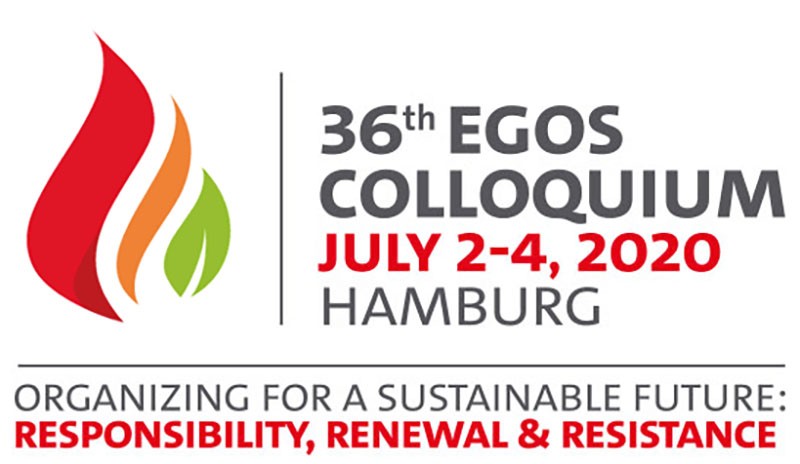In 2020, the 36th EGOS Colloquium overall theme critically engages with the role and responsibility of organizations and the organized in forming – and transforming – modern societies. Organizations are often both: causes of social, economic, and environmental disruptions, and at the same time also key drivers towards a more sustainable future. It is in this way that organizations and the organized are called upon to address a broad variety of questions on how to perform economic activities in a responsible manner, and how to resist harmful, unfair, or discriminatory practices. These issues entail an array of potential dilemmas, paradoxes, complexities, contradictions, and conflicts that need our scholarly engagement, involving critical reflection and resistance.
The EGOS Colloquium in Hamburg will take this debate forward and discuss the role, contribution, and stress factors of, and
for, organizations, as well as the different ways of organizing in order to promote an agenda towards a sustainable future.
Addressing grand challenges such as the reduction of poverty, fostering gender equality, tackling climate change, providing
good and affordable healthcare, or protecting our institutions from extremism and populism are fundamental challenges for
societies as well as for the many organizations contributing to modern society.
As scholars of organizations in the widest sense, we must develop novel avenues of critical thinking on the social and societal
responsibilities of organizations, along with innovative approaches for the use and re-use of scarce resources, and resistance
in the face of tendencies towards regression and harm. New technological advances and possibilities call for a close study
of phenomena such as fake news, and algorithms that have the potential to challenge the established and taken-for-granted
ways of organizing and to not just address but also generate additional prospects of inequality and harm. As organizations
are more than ever in need of organizing to prepare for uncertainty, unexpected
events, catastrophes, disasters, and rapidly changing environments, we also have to re-adjust our scholarly gaze. We might
even wish to re-think our scholarly community: our own ways of organizing ourselves, our ecological footprint, and our responsibilities
as individual scholars and in our institutions. This will all require innovative and creative theories, new methodologies,
and also new ways of engagement, both with organizational practice and within our community.
The University of Hamburg – the host of the EGOS Colloquium in 2020 – celebrates its 100th anniversary in 2019 and has been firmly committed to contributing towards a sustainable future with many aspects of its research
and teaching activities. Hamburg as a green city also aims at promoting a sustainable lifestyle: being located on the river
Elbe and hosting a large harbour, Hamburg has long since implemented measures for resilience and protection. Altogether, Hamburg
will provide an exceptionally stimulating environment for discussing the future of organizations, the organized, and processes
of organizing, and will assist us in finding novel ways to contribute and address the grand challenges of today and tomorrow.
For any questions re. the 36th EGOS Colloquium 2020 in Hamburg, please contact
-
either the EGOS Colloquium 2020 Organizing Committee: egos2020.wiso@uni-hamburg.de
-
and/or Angelika Zierer at the EGOS Executive Secretariat: angelika.zierer.secretariat@egos.org


